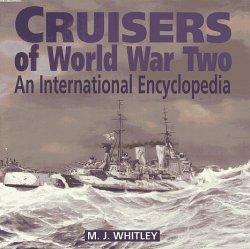In this chapter I have approached Greek and Roman political thought obliquely through consideration of imperial ideologies, citizenship myths, and legal contestations over citizenship status in classical Athens and republican Rome. From a comparative perspective, in terms of both ideology and actual political practice, classical Athens has emerged as relatively restrictive and exclusionary with regard to the citizen franchise; republican Rome as inclusive and incorporative.
Exceptions are of course ready at hand. Athenians granted citizenship en bloc to both Plataeans and Samians for extraordinary services to their state (Osborne 19813: 1: 28, 33-7); Romans fought a civil war before granting citizenship to the Italians, and they periodically expelled undesirables from the city and revised their citizen rolls, as in the case of the lex Papia of 64 bce (cf. Balsdon 1979). Moreover, while the legal speeches studied here employed arguments conforming to citizenship myths of unadulterated Athenian autochthony and hybrid Roman political inclusion, it is important to recognize that the speeches were produced in highly rhetorical cultures. We have to believe that in legal trials political and rhetorical needs of the moment could easily have modified or perhaps even subverted citizenship myths.
Against Neaira and Pro Balbo nevertheless illustrate persistent themes in Athenian and Roman ideologies, which both reflected and shaped citizenship practices in their respective cities. In Athens, to the best of our knowledge, Pericles’ restrictive citizenship law remained in force throughout the classical period, except for a brief time near the end of the fifth century bce (de Ste Croix 2004: 239-40). In stark contrast the Italian states of Fundi, Formiae, and Arpinum gained full Roman citizenship as early as 188 BCE (Liv. 38.36.7-8), and Caesar conferred citizenship upon all of Balbus’ compatriots at Gades a little more than a decade after Cicero’s speech (Liv. Epit. 110; Cass. Dio 41.24.1; Plin. NH 4.119). The extension of Roman citizenship accelerated under Caesar and Augustus (MacMullen 2000), culminating in a virtual blanket grant of Roman citizenship to all free inhabitants of the empire with the constitutio Antoniniana of 212 ce.
I opened this chapter with some reflections on current international relations and crises of citizen identities, suggesting that study of empire and citizenship in ancient Greece and Rome may provide useful insights into present-day concerns regarding those issues. The contrast of Athenian exclusivity and Roman inclusiveness could hardly be more salient than in the context of contemporary tensions between the splintering isolationism of renascent, substate nationalisms and xenophobic ethnic militias on the one hand, and on the other hand technological, demographic, financial, and entrepreneurial forces of integrative globalization.
Aspects of Athenian and Roman imperial citizenship discussed in this chapter hardly exhaust the valuable insights into contemporary issues that the study of classical antiquity might offer. For example, another relevant question, resonating with the predicament of the twenty-first century citizen and only briefly touched upon in this essay, concerns the impact of exclusive or inclusive citizenship policies upon citizens’ actual capacities to participate meaningfully in political processes.
This is an important question, and it draws attention to a crucial difference between the classical city-state and the modern democratic nation-state. As we have seen, since the former had no well-developed political institutions for representative government, the citizen’s ability to influence imperial administration in both classical Athens and republican Rome was related directly to his spatial proximity to the imperial metropole. In the empire of the Roman Republic, the extension of Roman citizenship to distant parts of Italy, and a fortiori extra-Italian citizenship grants, created what we might call paper citizens, who could not directly impact the administration of the empire. Athenian cleruchies may have created such paper citizens as well, albeit on a much smaller scale. And so, for quite different historical reasons, we must confront the question of the alienation of the citizen’s actual political power in both the classical and twenty-first century worlds (cf. Wood 1994, 1996). But that is a story for another time.




 World History
World History









